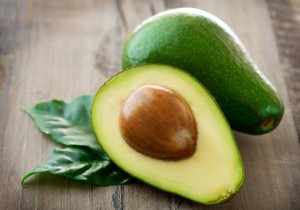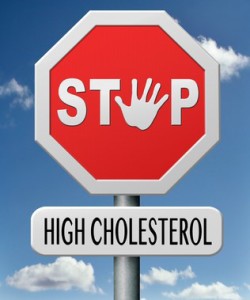Should Avocados Be On The Super Fruits List?
Author: Dr. Stephen Chaney
 You may have seen the recent headlines suggesting that avocados lower cholesterol, are a miracle fruit, and reduce your risk of heart disease. Some of those articles are suggesting that you try to eat an avocado every day. Are those headlines true? Should you be eating more avocados?
You may have seen the recent headlines suggesting that avocados lower cholesterol, are a miracle fruit, and reduce your risk of heart disease. Some of those articles are suggesting that you try to eat an avocado every day. Are those headlines true? Should you be eating more avocados?
If you are like me that would be a bit of a stretch. I prefer my fruits tastier and a bit less greasy, but I won’t let my personal preferences color my analysis of the data. Let’s start by looking at the rationale for testing the effect of avocados on cholesterol levels.
The 2013 American Heart Association Guidelines on Lifestyle Management to Reduce Cardiovascular Risk recommends reducing saturated fats to no more than 5% to 6% of total calories (In the typical American diet about 13% of calories come from saturated fat). The AHA recommends replacing the saturated fat with either monounsaturated fat or polyunsaturated fat (vegetable oils and fish oil).
In addition, a major clinical study has recently shown that a Mediterranean diet supplemented with either olive oil or mixed nuts (walnuts, hazelnuts and almonds) lowers cholesterol and reduces the incidence of major cardiovascular events by ~30% over 5 years in men and women aged 50 to 80 who were at high risk for cardiovascular disease (Estruch et al, N Engl J Med, 368: 1279-1290, 2013).
One avocado has about the same amount of oleic acid (a monounsaturated fat) as 2 tablespoons of olive oil or 1.5 ounces of almonds, so it is logical to suspect that avocados might have a similar effect as olive oil or nuts.
How Was The Clinical Study Designed?
Because there is still a lot of controversy as to whether diets in which the saturated fat is replaced with healthier fat or no fat at all (low fat diets) are better, this study (Wang et al, J Am Heart Assoc, 2015;4: e001355 doi:10.1161/JAHA.114.001355) compared 3 diets:
- A low fat diet in which most of the saturated fat was replaced with carbohydrate (24% total fat, 7% saturated fat, 11% monounsaturated fat, 6% polyunsaturated fat, 59% carbohydrate, 16-17% protein).
- A moderate fat diet in which most of the saturated fat was replaced with pure oleic acid (34% total fat, 6% saturated fat, 17% monounsaturated fat from oleic acid, 9% polyunsaturated fat , 49% carbohydrate, 16-17% protein).
- A moderate fat diet in which most of the saturated fat was replaced with avocado (34% total fat, 6% saturated fat, 17% monounsaturated fat from avocado, 9% polyunsaturated fat , 49% carbohydrate, 16-17% protein).
The study subjects were 45 healthy overweight or obese men and women (age 21 to 70, average = 45). Each subject was put on all 3 diets sequentially for 5 weeks each in a random order. That way each subject served as his or her own control.
The diets were carefully controlled to keep the calories the same so that none of the subjects lost weight during the study (weight loss would have confounded the results because weight loss lowers cholesterol in most individuals). The subjects were also told not to change their exercise habits. In short, it was a small study, but it was very well designed.
When the low fat diet was compared to the moderate (healthy) fat diets, the results were pretty similar to a number of other studies:
- Total cholesterol and LDL cholesterol (the bad type) were lowered to about the same extent by both types of diets.
- Triglycerides were higher and HDL cholesterol (the good type) was lower for the low fat diet compared to the moderate (healthy) fat diets.
Because this has been shown in previous studies, I won’t discuss it further here.
Do Avocados Lower Cholesterol?
 When the authors compared the diet in which saturated fat was replaced with avocados to the diet in which saturated fat was replaced with oleic acid there were a number of significant differences.
When the authors compared the diet in which saturated fat was replaced with avocados to the diet in which saturated fat was replaced with oleic acid there were a number of significant differences.
- Both LDL-cholesterol and non-HDL cholesterol were significantly lower on the avocado diet than the oleic acid diet. The decrease was about 10%. Based on the metrics adopted by the American Heart Association this has the potential to translate into a 20% decrease in heart disease risk.
- The avocado diet was the only one of the three diets that significantly decreased LDL particle number, small dense LDL cholesterol and LDL/HDL ratio, Many experts think that these parameters are better indicators of hearts disease risk than LDL cholesterol levels.
Do avocados lower cholesterol? The short answer is yes, eating an avocado a day can lower cholesterol levels and might possibly lower heart disease risk. But to understand the true implications of this study we need to dig a little deeper.
What Is the Significance of This Study?
This study has one important take home lesson and raises two important questions.
Take Home Lesson: Foods Are More Important Than Fats We often hear about the benefits of including more monounsaturated fats in our diet, but when you actually make a direct comparison, such as was done in this study, it turns out that it is the foods that contain monounsaturated fats that make the difference, not the monounsaturated fats themselves. The oleic acid diet was only marginally better than the low fat diet at lowering total and LDL cholesterol.
This was the major conclusion of the authors of the study. Everything else was made up by the non-experts who write the articles that you see in the papers and on the internet. It is yet one more example of the headlines getting ahead of the science.
The authors admitted that we have no idea why avocados are more effective at lowering cholesterol than an equivalent amount of oleic acid. They speculated that it could be due to the high content of phytosterols in avocados. However, while the 114 mg of plant sterols in an avocado makes it an excellent source of plant sterols, it is far below the 2,000 mg of plant sterols that the NIH considers optimal for lowering cholesterol levels.
The authors also mentioned soluble fiber and specialized sugars in an avocado, but none of those was present in sufficient quantities to explain the cholesterol-lowering effect of avocados by itself. It is likely that all of those constituents plus others that we have not yet identified are what make avocados more effective than oleic acid at lowering cholesterol.
Question 1: Do We Really Want To Eat An Avocado a Day?
We need to keep in mind that a single avocado weighs in at around 234 calories. That is:
- 2.5 times the calories in an apple
- 4.7 times the calories in a peach or a cup of strawberries
- 5.7 times the calories in a half cup of blueberries
- 7.3 times the calories in a half cup of raspberries or blackberries
You get the point. What made this study so effective is that all three diets were designed to provide exactly the same number of calories so that nobody gained or lost weight. If you are thinking of adding an avocado a day to your diet, you are going to need to significantly cut back on calories somewhere else, or your weight gain will drive your cholesterol levels in the wrong direction.
Question 2: What Are The Long Term Implications of This Study?
The bottom line is that this and previous studies suggest that avocados should rightfully be included along with olive oil and nuts as healthy sources of monounsaturated fats that can help you lower cholesterol levels and may reduce your risk of heart disease.
However, we need to keep in mind that while a major clinical study has shown that adding either olive oil or nuts to your diet can reduce heart disease risk, we don’t have a comparable study showing that adding avocados to your diet will have the same benefit. It is plausible, but has not yet been demonstrated.
The Bottom Line
- A recent clinical study has shown that eating an avocado a day was more effective at lowering bad cholesterol than adding an equivalent amount of the monounsaturated fat oleic acid to the diet. This suggests that it is the foods that contain the monounsaturated fats that make the difference, not the monounsaturated fats themselves.
- This and previous studies suggest that avocados should rightfully be included along with olive oil and nuts as healthy sources of monounsaturated fats that can help you lower cholesterol levels and may reduce your risk of heart disease.
- However, we need to keep in mind that while a major clinical study has shown that adding either olive oil or nuts to your diet can reduce heart disease risk, we don’t have a comparable study showing that adding avocados to your diet will have the same benefit. It is plausible, but has not yet been demonstrated.
- You also need to keep in mind that a single avocado contains 234 calories. What made this study work so well is that each diet was carefully designed to provide exactly the same number of calories. If you are thinking of adding an avocado a day to your diet, you are going to need to significantly cut back on calories somewhere else, or your weight gain will drive your cholesterol levels in the wrong direction.
- Finally, the American Heart Association Guidelines are to reduce saturated fats to no more than 6-7% of total calories. So while the low-carbohydrate, butter, bacon, and steak diet may give you temporary weight loss, it is definitely NOT recommended if you want to reduce your risk of heart disease. For more on this important topic, see my previous health tip “Are Saturated Fats Good For You?”
These statements have not been evaluated by the Food and Drug Administration. This information is not intended to diagnose, treat, cure or prevent any disease.
